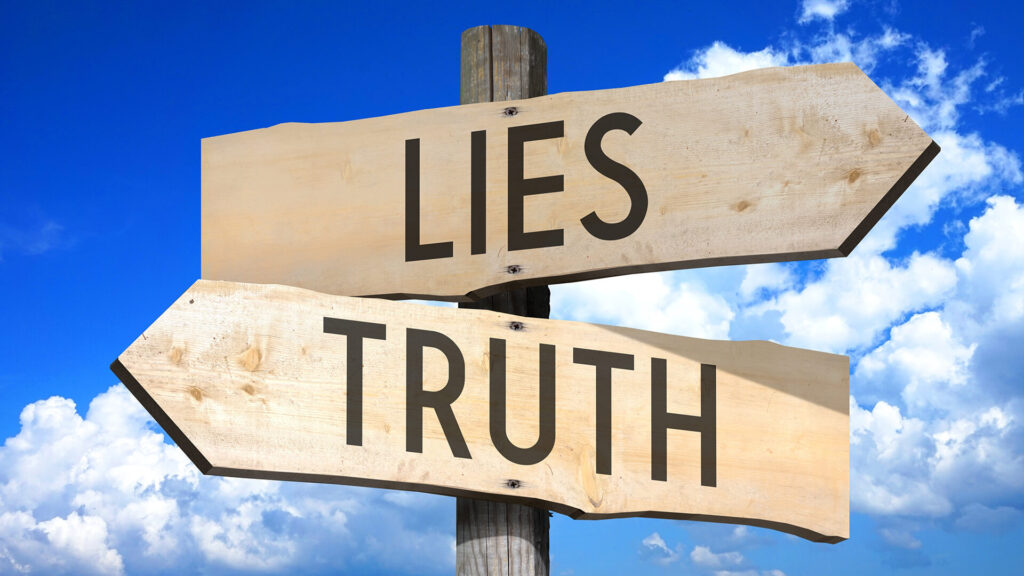Throughout my life, I have encountered more than my fair share of liars and bullshitters—individuals who manipulate, fabricate, and distort reality for their own ends. Having navigated these deceptions firsthand, I found myself compelled, as the classical philosopher that I am, to step back and examine the nature of lies and bullshit from a deeper, more philosophical perspective. What truly separates a lie from mere bullshit? Why do people resort to one over the other? And more importantly, which is more dangerous? These questions led me to a profound exploration of deception itself—its motivations, its consequences, and its insidious role in shaping the way we communicate and perceive truth.
While lying has been extensively studied as an intentional act of falsehood aimed at concealing the truth, bullshit occupies a distinct philosophical and practical territory. Unlike liars, bullshitters exhibit a disregard for truth itself, prioritizing narrative construction over factual integrity. Drawing on the works of Harry Frankfurt, James Fredal, and Sven Ove Hansson, this discussion will probe the essence of bullshit, its relationship to lying, and the dangers inherent in its unchecked proliferation.
Defining Bullshit
The term “bullshit” holds a prominent place in contemporary discourse, though its exact meaning often eludes precise definition. The Merriam-Webster Dictionary defines it as “nonsense; foolish, deceitful, or boastful language.” However, the philosophical understanding of bullshit transcends this surface definition. Harry Frankfurt, in his seminal essay On Bullshit, argues that bullshit is not merely falsehood but a disregard for truth altogether. Frankfurt writes, “The bullshitter is neither on the side of the true nor on the side of the false. His eye is not on the facts at all, as the eyes of the honest man and of the liar are, except insofar as they may be pertinent to his interest in getting away with what he says” (Frankfurt 55).

Unlike lying, which requires an awareness of and effort to obscure the truth, bullshit arises from indifference to truth. Sven Ove Hansson expands on this idea, suggesting that bullshit is a form of “truth-indifference” where the speaker’s primary goal is not to deceive but to manipulate or shape perception for personal advantage (Hansson 317).
Motivations Behind Lying and Bullshit
Both lying and bullshit are motivated by a desire to manipulate others, but their purposes and methods differ. Liars seek to conceal the truth, often for personal protection or gain. In contrast, bullshitters are motivated by a desire to construct a narrative that suits their purpose, regardless of its factual foundation. James Fredal explores this distinction, asserting that bullshit is often employed to fabricate coherence or project confidence, especially in situations where genuine knowledge is lacking (Fredal 91).
For instance, consider the realm of politics, a fertile ground for bullshit. Politicians frequently deploy bullshit to shape public opinion, knowing that the audience may lack the expertise to discern truth from fabrication. This phenomenon reflects a fundamental motivation behind bullshit: to exploit the epistemic limitations of the listener. As the adage humorously states, “Opinions are like assholes; everyone has got one.” The prevalence of uninformed opinions amplifies the impact of bullshit, as individuals often substitute confidence for competence.
Distinguishing Bullshit from Lies
The distinction between bullshit and lies hinges on intent and engagement with the truth. A lie deliberately conceals or misrepresents truth to deceive, while bullshit operates in a realm of indifference, where truth is irrelevant to the speaker’s goals. As Frankfurt notes, “The essence of bullshit is not that it is false but that it is phony” (Frankfurt 47). In this way, bullshit is not merely a distortion of truth but a rejection of its relevance.
Bullshit can be more insidious than lying because it undermines the very concept of truth. Liars acknowledge the truth by seeking to obscure it, whereas bullshitters erode the distinction between truth and falsehood altogether. This erosion has far-reaching consequences, particularly in public discourse, where the unchecked spread of bullshit fosters cynicism and diminishes trust in institutions.
The Dangers of Bullshit
Bullshit is particularly dangerous in domains where truth is paramount, such as politics, science, and media. Fredal emphasizes that bullshit thrives in environments of low accountability, where the speaker is not required to substantiate their claims (Fredal 93). In politics, for example, bullshit enables leaders to appeal to emotions or biases rather than presenting factual arguments, thereby manipulating public perception. The resulting misinformation can lead to disastrous outcomes, as decisions are made based on fabricated narratives rather than reality.
Moreover, the prevalence of bullshit in public discourse contributes to a culture of epistemic laziness, where listeners accept statements at face value without critical evaluation. While many individuals possess an intuitive ability to recognize bullshit, as Sven Ove Hansson observes, societal norms often excuse or tolerate its presence (Hansson 321). This tolerance perpetuates a cycle of misinformation, eroding the foundations of rational discourse.
Lying vs. Bullshit: Which Is Worse?
The question of whether lying or bullshit is worse hinges on their respective impacts on truth and trust. While lying is undoubtedly harmful, its intent to deceive is clear and identifiable. Bullshit, by contrast, obscures the boundaries between truth and falsehood, fostering a climate of epistemic uncertainty. Frankfurt warns that this indifference to truth poses a greater threat than lying, as it undermines the very conditions necessary for meaningful communication (Frankfurt 61).

However, not all bullshit is devoid of truth. Some bullshit incorporates elements of fact, making it more difficult to detect and refute. This hybrid nature makes bullshit particularly pernicious, as it exploits the listener’s partial knowledge to construct a plausible but ultimately misleading narrative.
Conclusion
Lying and bullshit represent distinct yet overlapping forms of deception, each with unique motivations and consequences. While liars deliberately obscure the truth, bullshitters disregard it altogether, prioritizing narrative construction over factual integrity. This indifference to truth makes bullshit a more pervasive and insidious threat, particularly in domains where accuracy and accountability are critical. As a society, we must cultivate the discernment to recognize and challenge bullshit, fostering a culture that values truth and critical inquiry over convenience and superficiality.
Works Cited
Frankfurt, Harry G. On Bullshit. Princeton University Press, 2005.
Fredal, James. Rhetoric and Bullshit: Reflections on Frankfurt and Aristotle. Rhetoric Review, vol. 26, no. 2, 2007, pp. 91-107.
Hansson, Sven Ove. “The Ethics of Bullshitting.” The Journal of Value Inquiry, vol. 44, no. 3, 2010, pp. 317–325.
